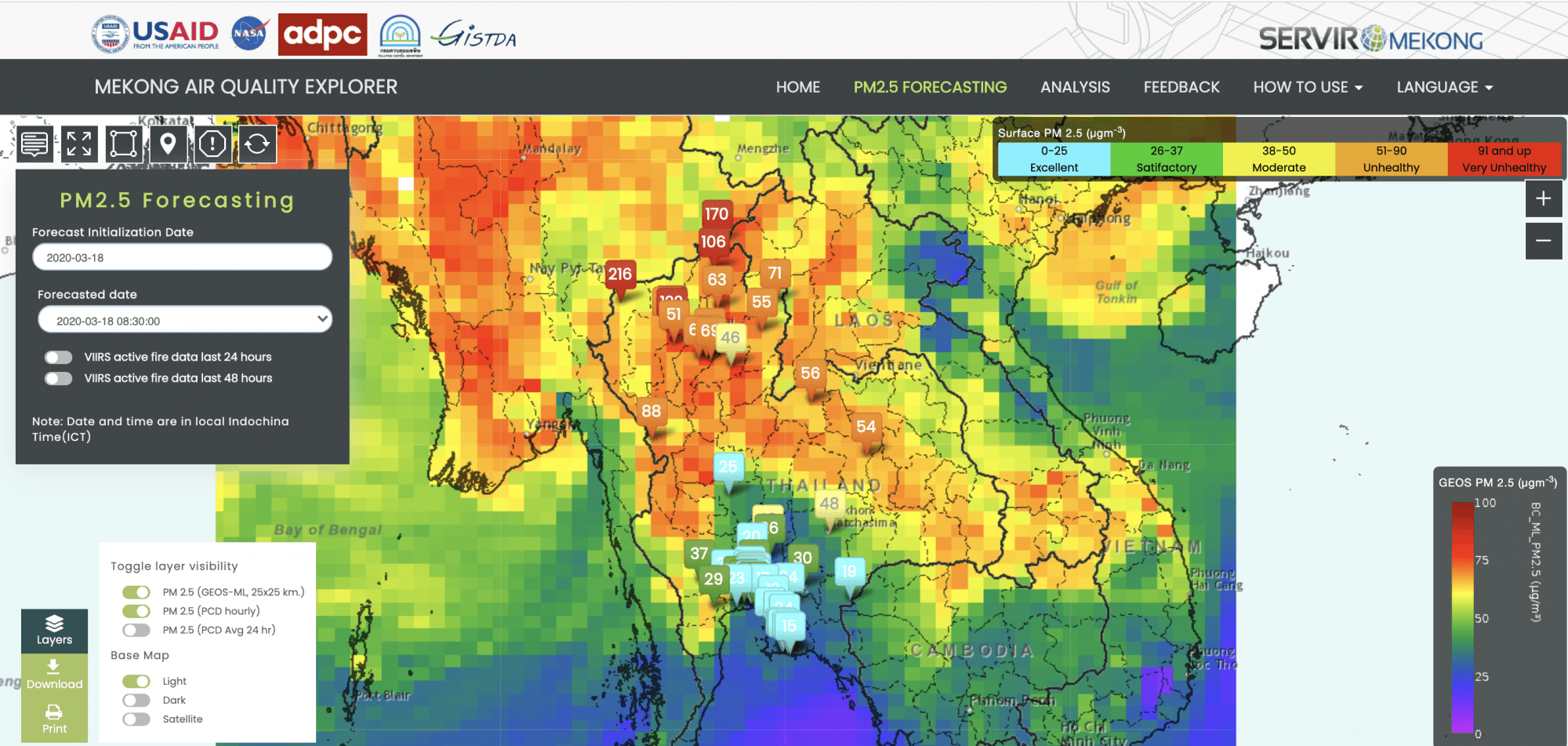

For decades, NASA has used the vantage point of space, combined with airborne and ground-based field campaigns, to decipher the impact of air pollution and help other agencies protect people when unhealthy air threatens the places they live, work and play. Now government agencies in Thailand are harnessing the power of NASA air-quality data and expertise through a unique partnership with SERVIR.
SERVIR, a Spanish word meaning “to serve,” is a joint initiative between NASA and the U.S. Agency for International Development to boost environmental resilience and decision-making in developing regions around the world. Through its network of regional hubs, SERVIR puts publicly available satellite imagery, geospatial data and analysis tools into the hands of local decision-makers to help solve their most pressing environmental challenges. The SERVIR-Mekong hub, located at the Asian Disaster Preparedness Center in Bangkok, serves countries in the Mekong River Basin.
To improve air pollution monitoring in Thailand and the lower-Mekong River region, SERVIR-Mekong brought together experts in air-quality measurement, technology design, atmospheric modelling and civic engagement. They include the Royal Thai Government’s Pollution Control Department and Thailand’s Geo-Informatics and Space Technology Development Agency. Together, they developed a web-based platform for tracking and forecasting air quality in the region.
SERVIR-Mekong’s new Air Quality Explorer tool, introduced Nov. 23, 2020, at an event in Bangkok, features some major advances over past pollution-monitoring systems. The new app combines NASA satellite data, ground-sensor data and machine-learning techniques to enable large-scale monitoring and forecasting of air quality for the first time in Thailand. Previous systems relied heavily on ground-based technology.
While sensors on the ground can pinpoint local sources of pollution, satellites have proven essential for filling in missing data to provide consistent, near-real time maps of pollution hotspots that would otherwise be invisible. Satellite observations help scientists and decision-makers see the bigger picture of how air pollution is distributed across the region and how it changes over time.
Image Credit: NASA/USAID/SERVIR-Mekong